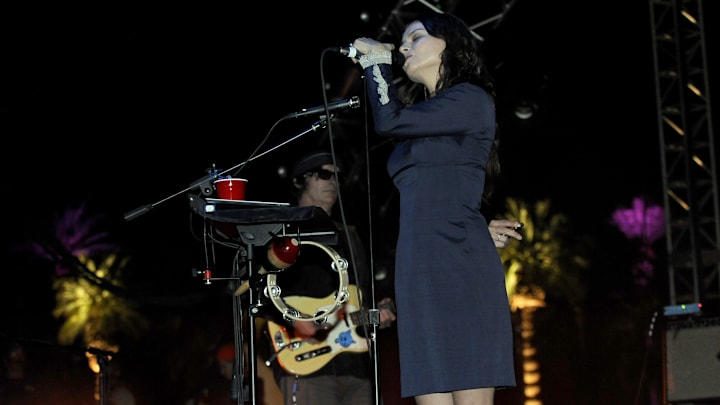What made rock music in the 1990s what it turned out to be? Of course, there’s always a number of social and cultural elements that can be taken into account, and cover as many genres you can go as broad as you can fit in, but as far as rock is concerned, the ones that come to the forefront are usually the ones that influenced the music you most listened to.
It was surely the decade when the (very broad) terms alternative and indie rock came to prominence. This was followed by genres like grunge, Britpop, and trip-hop, among others. It was also the decade when learning about music over the internet and downloading music spread like wildfire (who remembers the Napster controversy?), where a multitude of opportunities started opening up, for both the artists and the listeners.
Yet, with all the abundance that was suddenly cropping up, a situation was also created when certain artists/bands. That is no matter how good they were, or how possible it was for them to make it big, the band kept flying under the radar. The bands may have created a staunch fan base but did not move much further than that.
Seven 1990s bands that deserved more attention
Here are seven such bands that left (or are still leaving) a great body of music, but never made it as big as they should have.
Buffalo Tom
This Boston band led by Bill Janovitz could be the epitome of alternative rock of the nineties. Anywhere between grunge and any other form of indie rock, the band was a true nineties rock and a staple of many college radio stations. Although they have a solid fan base that enables the band to be active even these days, they seem to have not caught the ears of a very wide audience they thoroughly deserve.
Dinosaur Jr.
Another product of the Boston rock scene and another band that remains active to this day. Some critics think that Dinosaur Jr. and its leader J. Mascis are responsible for bringing back lead guitar to nineties rock, with his playing style being possibly one of the more important ones of the decade. The band also included (on and off) one Lou Barlow, himself an inspirational indie rock figure both for his solo work (as is Mascis) and the one with Sebadoh
Fountains of Wayne
New Jersey’s Fountains of Wayne's first album did sell fairly well. Even with the relative success, and though some of their later releases turned out to be some of the best power pop of the nineties, they unfortunately never repeated that first level of success later on.
What is even more unfortunate is that the band’s main force Adam Schlesinger, passed away during the COVID-19 epidemic in 2020. He was also the person who wrote the music to the title song from That Thing You Do!, one of the best rock movies made.
Jellyfish
In some ways, San Francisco’s Jellyfish had a similar fate to Fountains of Wayne. They had a great hit with “Baby’s Coming Back,” a true modern psych-pop song, off their first record (Jellyfish only released two official studio albums). Even though they formed a strong cult fan base that remains strong to this day, things started falling apart, with members (Jason Falkner and Chris Manning) leaving, and the band fading away.
Still, Falkner, as well as other key members of the band (Andy Strumer and Roger Manning) remain active on the scene continuing to make great psych/power pop but without the wider impact they and their former band deserve.
Mazzy Star
If Buffalo Tom were the epitome of alt-rock, then the duo of Hope Sandoval and the late David Roback who operated under the name of Mazzy Star could be the epitome of dream pop. With Roback’s (former leader of Rain Parade) dreamy songwriting and psych guitar sound, and Sandoval’s incredible, delicate vocals the duo was everything dream pop should be about.
While the band’s four studio albums created a buzz among the critics and created a solid fan base, the wider success Mazzy Star deserved was within reach but never really materialized. That wider success is still eluding Sandoval, who continues to create some of the best dream pop around.
The Olivia Tremor Control
Part of the incredibly diverse Elephant 6 Collective, was practically everything that could be labeled alternative rock - from psych-pop to experimental electronics, something that the Elephant 6 Collective was in its key idea - musical diversity.
In the five or so years of the existence of the band led by Will Cullen Heart and Bill Doss, the band created some incredible music. Albums Music from the Unrealized Film Script, Dusk at Cubist Castle, and Black Foliage: Animation Music, Vol. 1 rank as some of the decade's most diverse.
Screaming Trees
Seattle’s Screaming Trees came onto the scene along with the grunge wave with Nirvana becoming a legend and Soundgarden garnering big success too, as well as some other grunge bands.
Screaming Trees, who might have looked more (and probably sounded more) towards psych and garage rock than hard rock and heavy metal some other grunge bands favored, were always close, but never got that cigar they thoroughly deserved. Too bad for the Conner brothers who founded the band, but also for the great Mark Lanegan, who never got the big slice of success he deserved both for his work with the band and his solo career.
